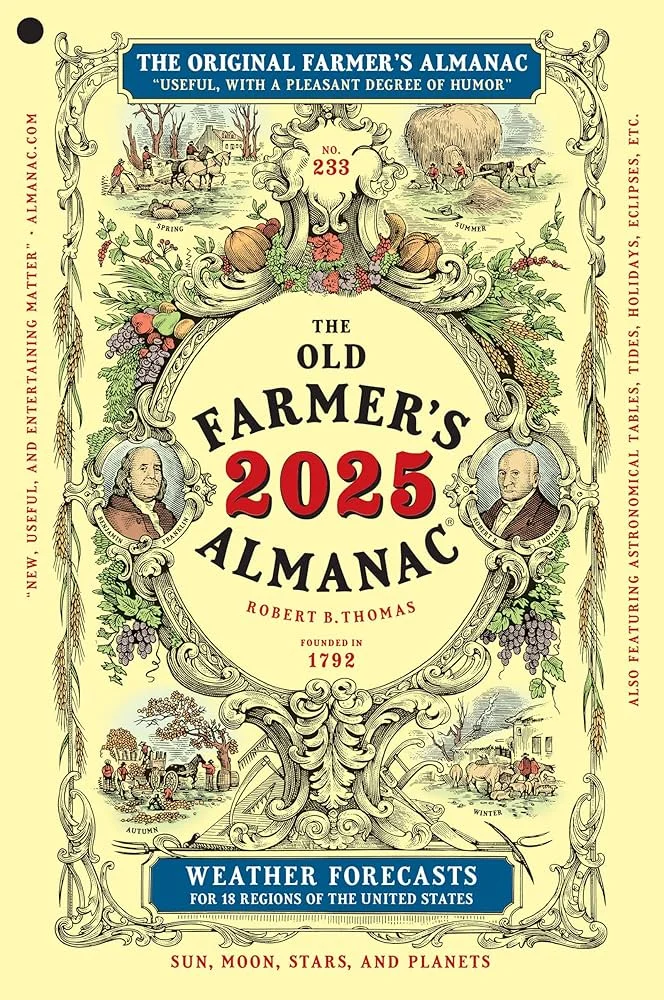BTC Signals Pro | Bitcoin Trading Alerts & Market Insights
BTC Signals Pro | Bitcoin Trading Alerts & Market Insights
It's a bittersweet moment, isn't it? Like watching the sun dip below the horizon, painting the sky in breathtaking colors, knowing that darkness is coming, but also knowing that the sun will rise again. The Farmers' Almanac, a fixture in American life for over two centuries, is ceasing publication after its 2026 edition. Two hundred and eight years of weather predictions, planting guides tied to moon phases, and folksy wisdom – gone. At least, in its physical form.
But before we get all misty-eyed and nostalgic, let's think about what this really means. Is it truly the end? Or is it just a transformation? The news hit me hard, I won't lie. I remember flipping through my grandfather's copy as a kid, marveling at the long-range forecasts that seemed almost magical. But then I started thinking… maybe this isn't a loss. Maybe it's an opportunity.
The official statement cites "increasing financial challenges" as the reason for the closure. In today's world, where information is instant and often free, it's tough for any print publication to stay afloat, let alone one that relies on a yearly cycle. But let's be honest, the spirit of the Almanac – that deep connection to nature, that reliance on observation and accumulated knowledge – that's not something that can be printed or digitized out of existence.
Editor Sandi Duncan said it best: the Almanac will "live on in the way that millions of readers share the bits of wit and wisdom they gleaned from the Almanac." It's about the stories passed down, the traditions kept alive. It's about planting peas when the daffodils bloom, because that's what your grandma always did, and she learned it from the Almanac. That's a legacy that's impossible to quantify.
Think about the Library of Alexandria. When it burned down, we lost a tremendous amount of knowledge, but the idea of collecting and preserving knowledge lived on, inspiring countless libraries and universities throughout history. The Farmers' Almanac, in a way, is facing a similar fate. The physical object may disappear, but the idea – the connection to nature, the reliance on time-tested wisdom – that will continue to thrive.

And isn’t that what really matters?
Now, I know some people are probably rolling their eyes. "It's just a book," they're saying. "Get over it." But I think it's more than that. The Farmers' Almanac represented a way of life, a connection to the land that's becoming increasingly rare in our hyper-connected, digital world. It was a reminder to slow down, to observe, to appreciate the rhythms of nature. Can we really afford to lose that?
Here's where my optimism kicks in. I believe that the essence of the Farmers' Almanac can not only survive, but thrive in the digital age. Imagine an interactive platform where users can share their own observations, contribute to local weather forecasts, and access a vast database of gardening tips and folklore. Think of it as a crowdsourced, living Almanac, constantly evolving and adapting to the needs of its users.
The website will remain accessible until December 2025. What if that platform became the seed for something even bigger? Something more collaborative, more accessible, and more relevant than ever before? It’s a chance to democratize that knowledge, to make it available to anyone, anywhere. A Fond Farewell. It’s a chance to democratize that knowledge, to make it available to anyone, anywhere.
The challenge, of course, is to preserve the spirit of the Almanac – that sense of community, that connection to tradition, that respect for nature – while embracing the possibilities of the digital world. It won't be easy. But I believe it's possible. And I think it's worth fighting for. How do we make sure that the wisdom isn't lost in the noise? How do we ensure that the new platform is accessible and inclusive for everyone, regardless of their technical skills or access to technology?
The Farmers' Almanac may be closing its doors, but its legacy will live on. It's up to us to keep the spirit alive, to share the stories, and to continue learning from the wisdom of the past. The final edition is available now. Let's not mourn its passing. Let's celebrate its life and embrace the possibilities of the future.